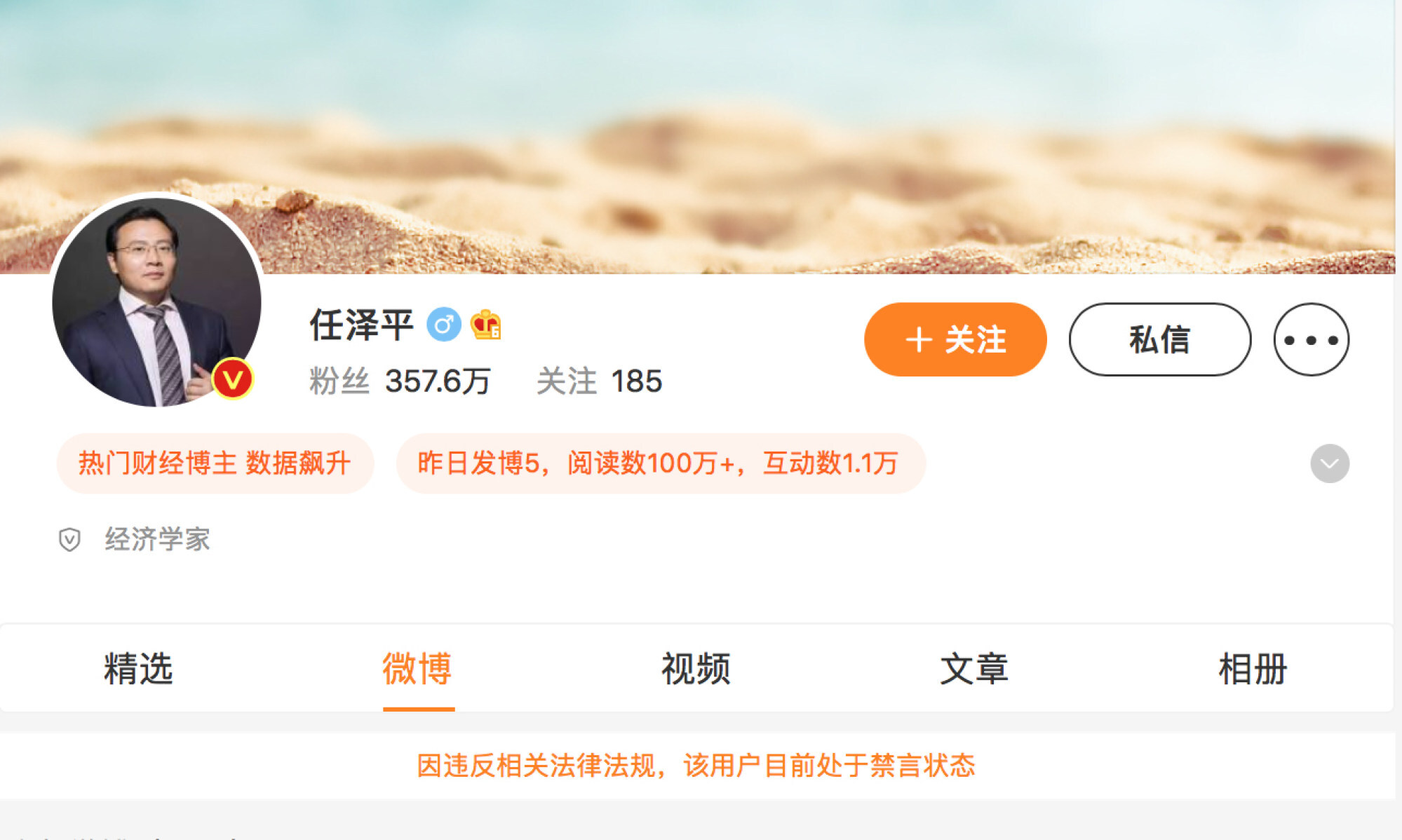
Chinese economist Ren Zeping banned from posting on Weibo after comments on financing childbirth stir controversy
- Weibo said in a notice at the top of Ren’s account that Ren had ‘violated relevant laws and regulations’
- Ren’s arguments provoked a backlash from analysts, some of whom suggested that the ideas were impractical
Chinese economist and online celebrity Ren Zeping was banned from posting on Weibo, China’s answer to Twitter, late on Wednesday after a string of controversial posts suggesting the central bank print 2 trillion yuan (US$314 billion) to support the birth of 50 million babies over the next 10 years sparked lively public debate.
Weibo said in a notice at the top of Ren’s account that Ren had “violated relevant laws and regulations”. Although Ren cannot post anything new, his account has not been deleted. Ren’s original articles have also been removed from his WeChat platform.
“The central bank [should] print an extra 2 trillion yuan to encourage society to have 50 million more kids in 10 years,” said Ren Zeping, China Evergrande Group’s former chief economist, in an article published on Monday and which soon went viral.
Is printing trillions of yuan the ‘only solution’ to China’s population woes?
“This can solve China’s low-birth and ageing-population problems and energise the future without burdening people, companies and local governments. Based on our studies, this is the only, and the most practical, solution,” Ren said.
He also urged China to establish the fund as quickly as possible, so that older women born between 1975 and 1985 and conditioned to believe that more children are a blessing, could take advantage of it before they are no longer fertile.

Ren’s argument provoked a backlash from analysts, some of whom suggested that the ideas were impractical and lacked common sense. But Ren doubled down during a live-stream broadcast on Monday evening, saying that printing money to encourage births would become a reality in the next few years.
Beyond Weibo’s notice that Ren’s account had violated regulations, some experts speculated that Ren may have hit a nerve with policymakers.
“Asking the People’s Bank of China to print 2 trillion yuan is a subject of great significance that needs meticulous argument,” said the 21st Century Business Herald in a report, citing industry insiders.
As China’s births fall, so few first children is the ‘most pressing problem’
“[Ren’s] opinions might be provocative and receive some responses, but it is too hasty. We have seen the screenshot he posted of his followers seconding his suggestions that the country needs to print money to support childbirth, but the solution to the ageing population is never easy,” said the 21st Century Business Herald.
“If the mass public believed that China should print money to stimulate childbirth, its consequences [would be grave], and the policymakers would not want to see that.”
This represented the first time the birth rate had fallen into single figures, according to the China Statistical Yearbook 2021, released late last year by the National Bureau of Statistic (NBS).
Putting aside the issue of supporting childbirth, China has historically rolled out large stimulus packages to help the country’s economy bounce back from adversity. In 2008, China launched an economic stimulus programme worth 4 trillion yuan to cushion the impact of the global financial crisis, with the economy jumping back to GDP growth of 7.9 per cent in the second quarter of 2009.
But some have blamed the 4 trillion stimulus for a surge in local government debt after 2009, which further fuelled inflation and a real estate bubble, while resources and production capacity were wasted on inefficient and low-quality investments.

